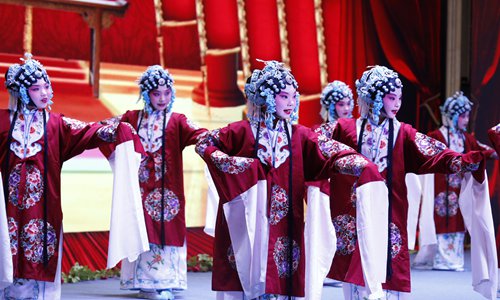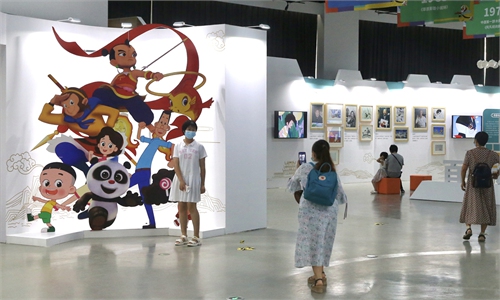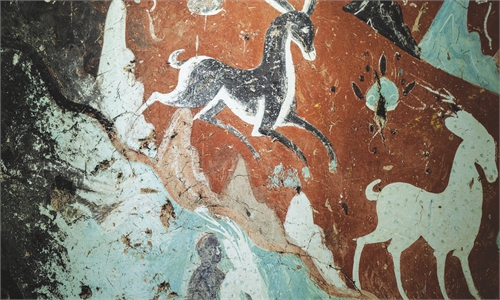ARTS / ART
Trends: Jingju Theater Company of Beijing's repertoire performances

Photo: Li Hao/GT
The Jingju Theater Company of Beijing is performing 20 of the best operas in its repertoire for audiences until Sunday.To inherit, promote and develop Peking Opera and effectively conserve traditional operas that are on the verge of being lost, the theater has accumulated about 60 works since 2019.
Peking Opera was at its peak in the 1920s and 1930s, when more than 3,000 performances in total were put on over the two decades, which is evidence in its market size and social influence.
The art form has seen something of a revival in recent years as more young people have been learning about it through new media channels.
China Culture Daily
A newly unearthed land purchase certificate recently discovered from a tomb in Shanxi Province has provided the new physical evidence to study the burial culture of the period.
The certificate was found in a Jin (1115-1234) tomb in Dongfengshan village in Yuncheng, North China's Shanxi Province, according to the Shanxi Archaeology Institute.
It was dated as the year of "Mingchang," which was the first year of the reign of Emperor Zhangzong of Jin (1190-1196).
A total of nine burial objects were unearthed from the tomb along with the certificate, including five pieces of porcelain (two porcelain bowls, two porcelain jars, and one porcelain lamp) and three pieces of clay pottery.
China News Service
Low-price tour groups (tours set at low prices but which force tourists to buy over-priced items along the way), which are clearly prohibited by law, cannot return under the camouflage of recruiting "tourism experience officers."
Tourism experience officer is a position that fills people with infinite aspiration, but has been turned into a new cover for illegal low-cost tour groups by some companies, and has become a prop to earn "capital fees" and defraud local government travel subsidies.
We must not condone such illegal actions, but deal them a heavy blow to create a clean environment for recruitment and tourism.
The Paper


